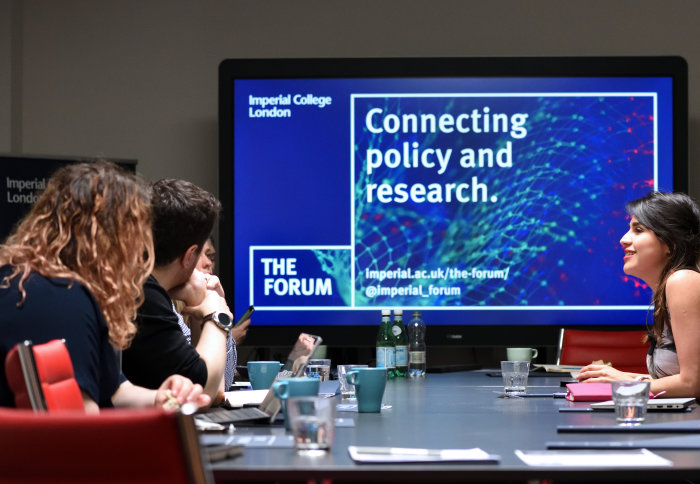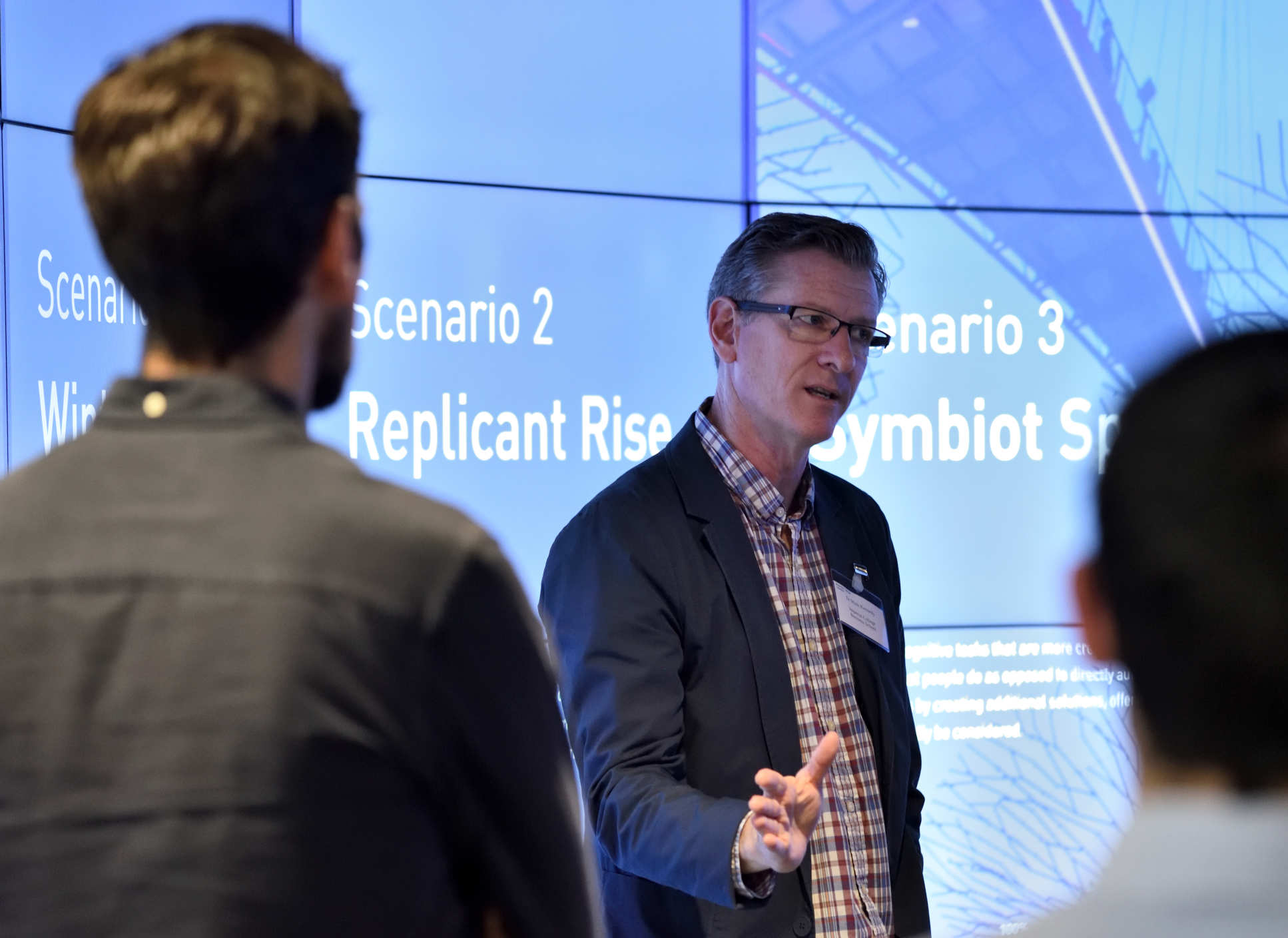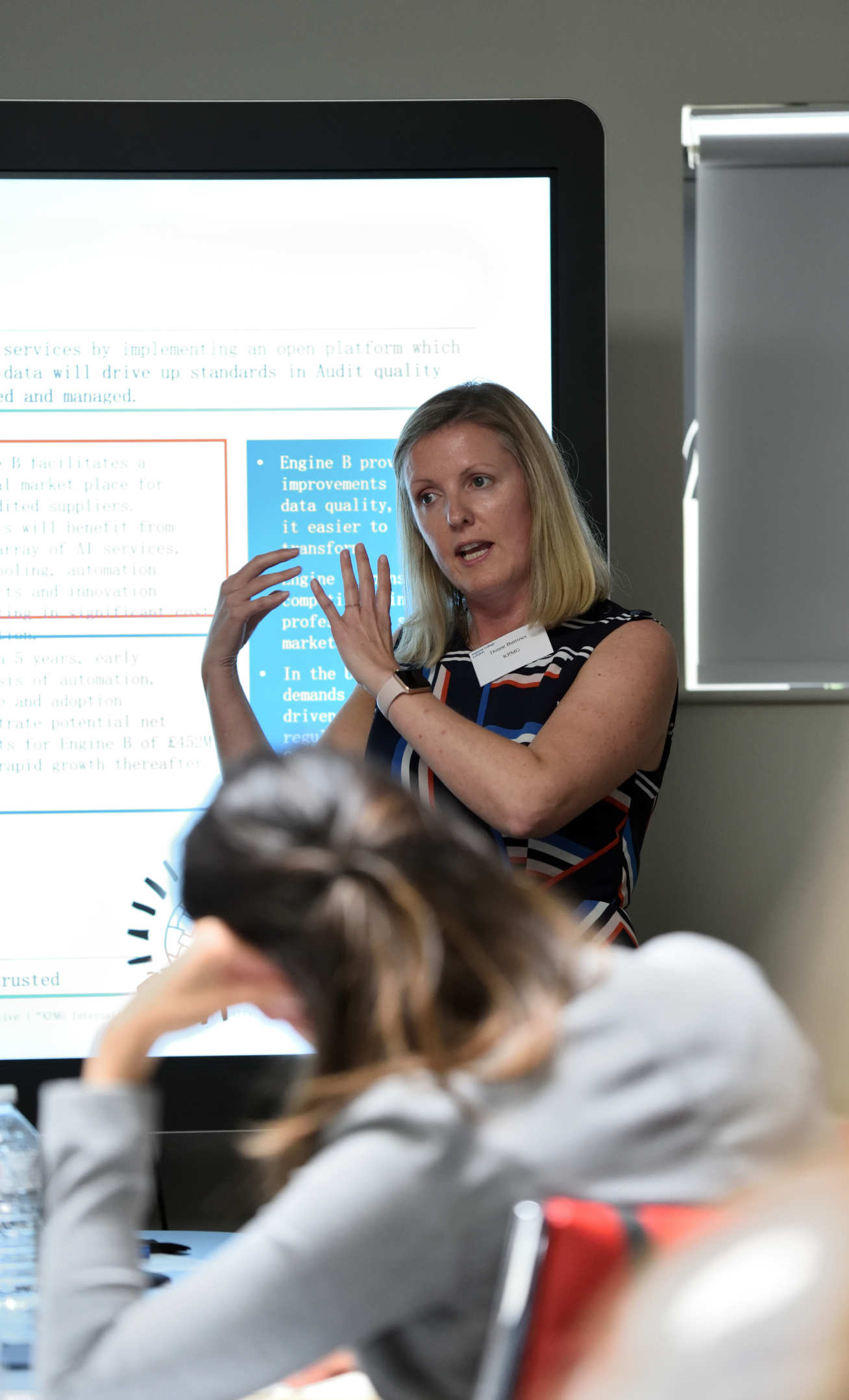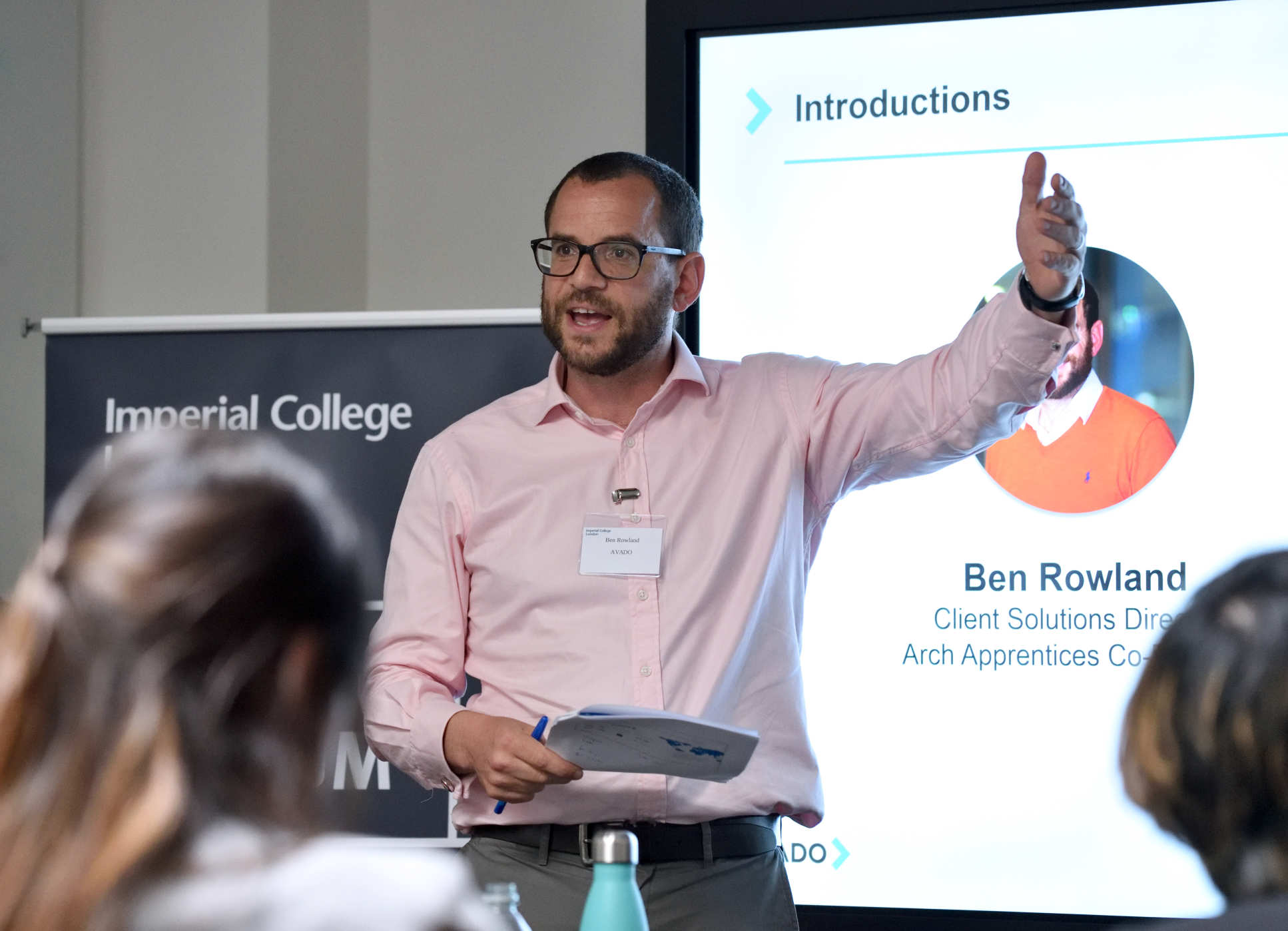Industry, academic and policy leaders debate AI and future jobs

Policy-makers, industry experts and academics joined together to discuss the impact AI will have on the future of work
The threats and opportunities of artificial intelligence (AI) and robotics to the workforce took centre stage at the latest Forum policy workshop.
Imperial researchers and peers from the private sector presented the latest research on AI and the future of work to civil servants last week as part of the College’s policy engagement programme.
The Forum is Imperial’s new programme to connect researchers with policy-makers to discover new thinking on global challenges. In a workshop on AI and the future of work held last week at the College’s Data Science Institute (DSI), four researchers presented their work to civil servants on different aspects of AI in the workplace, which has the potential to revolutionise the jobs market in a manner which hasn’t been seen since the industrial revolution.
The crystal ball is cracked Dr Mark Kennedy
Attendees first heard from Dr Mark Kennedy, a Director of Imperial Business Analytics - a DSI Lab and research centre focused on tools for data science and AI and their likely impact on business. On the supposed threat robots pose to jobs, he claimed “the crystal ball is cracked”, referring to the number of similar inaccurate predictions in recent decades. He argued that technological disruption isn’t a new phenomenon, citing the historical examples of the industrial revolution and the chemical century.

Dr Kennedy explained the difference between automation and augmentation, predicting that the latter – which involves machines’ unsupervised learning – will have a bigger impact on the future of work because AI is more likely to replace individual tasks rather than entire jobs themselves. Market forces, he predicted, would then lead to the tasks in human jobs changing, rather than allow humans to live lives free of labour.
Dr Kennedy believes that we can predict which skills AI may replace, and is carrying out a census of what tasks certain jobs consist of. This analysis, he hopes, will enable organisations to adapt employment structures to ensure AI enhances jobs as well as replacing them.

Up next was Donne Burrows, a senior manager at KPMG specialising in large scale business and operational transformations, with a focus on digital disruption, AI and digital transformation. She outlined how she is exploring how AI will transform the professional services industry by 2025-2030. In a sector dominated by a small number of large, people-based organisations, AI will bring about huge change.
Donne outlined that clients are becoming savvier about the value of their data, and her work directing Engine B, a cross industry project to standardise data usage across the industry. She echoed Dr Kennedy’s words around technology transforming job roles, remarking that auditors welcome AI because it has the potential to make their jobs more exciting.
George Eiloart and Ben Rowland of AVADO, an international learning business, presented their work in upskilling employees to enable firms to convert their data into insights. Their research found four main obstacles for firms: a lack of data literacy; ineffective decisions – for example, managers trusting their gut over the data; an ineffective use of analysts; and the difficulty in recruiting such analysts.

Firms, they said, can’t just upskill senior staff but must aim to have all employees comfortable using data. They also outlined the importance of digital apprenticeships, sparking a discussion around how central data skills should be in government retraining programmes, alongside the core skills of Maths and English.
Imperial graduate Otto Godwin - now working on artificial intelligence at DLA - closed the session, outlining how his research at Imperial prepared him for his current role, where he uses data analytics to improve the efficiency of operations at the law firm.
Attendees included policy-makers from across government, including the Department for International Development, the Department for Education, the Department for Business, Energy and Industrial Strategy, the Office for Artificial Intelligence and GO-Science. They were joined by representatives from Future Advocacy and Reform think tanks.
The Forum has previously engaged policy-makers in workshops on other key areas of Imperial research, including air quality, data privacy and AI’s healthcare applications, and has further workshops planned for the next academic year.
On 15 July, the official launch of The Forum will take place, with a speech by Sir Patrick Vallance, Chief Scientific Adviser to HM Government, and a networking reception for academics and policy-makers. Find out more and sign up on Eventbrite.
Article text (excluding photos or graphics) © Imperial College London.
Photos and graphics subject to third party copyright used with permission or © Imperial College London.
Reporter
Joe Dharampal-Hornby
Communications and Public Affairs
Tom Rutland
Communications and Public Affairs